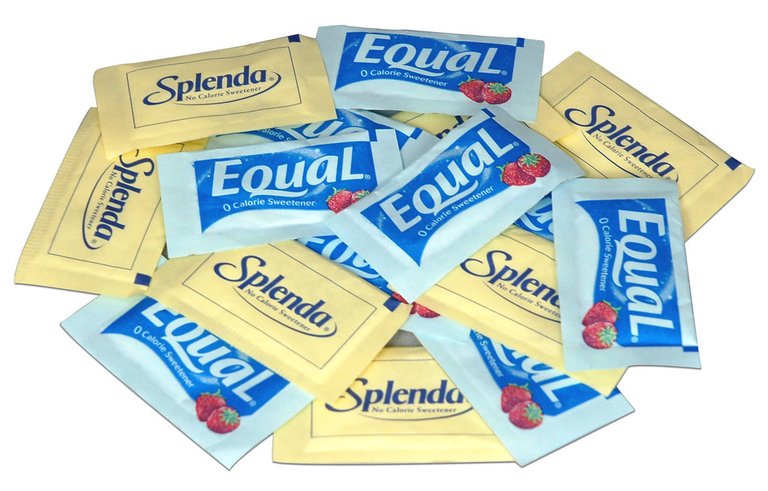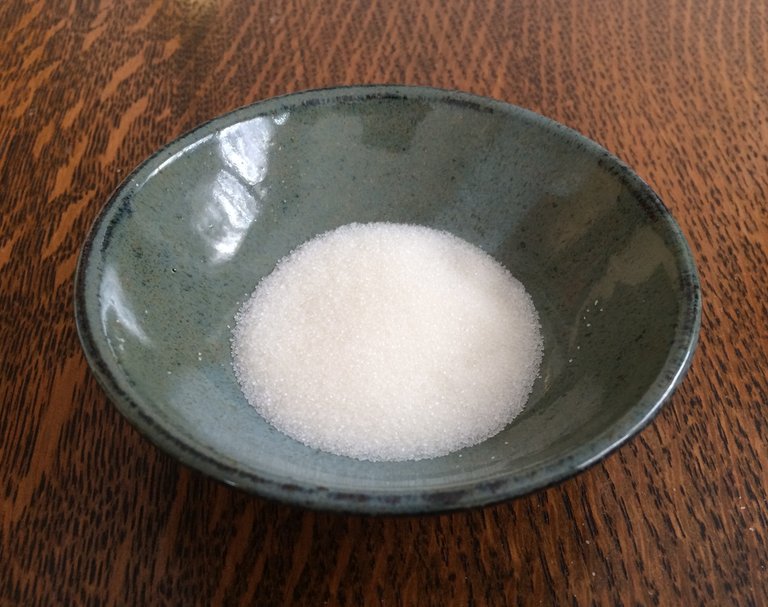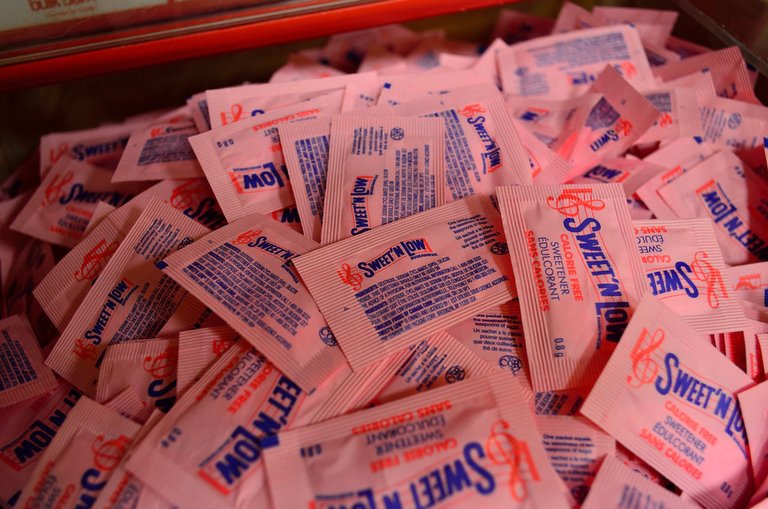Artificial Sweeteners: Are They Safe and Effective?
From Diet drink, zero sugar, no sugar, free calories, to Jams, Toothpaste, Yogurt, and almost everything, there is one thing in common and that is the presence of artificial sweetener. These substances are a result of scientists stumbling on results that were not intended, so we could call them a mistake, but its like they are in almost everything edible or that goes to the mouth.
Sweeteners are powdery substances made out of complex chemistry but it is sweet. Although it is sweet, people still have their stand on it, and a lot of people do not trust it. It is understandable since it is man made, and it's first ever was just recently approved by the FDA in 1970 which is still very recent compared to penicillin discovery.
If you ask food companies why artificial sweeteners are used, you might get answers like "Sugar is not good for our health but because it is sweet people love it, so we have decided to come up with a better alternative which is sweet but less harmful" I really feel for that sugar even when I am not a fan of it. Although, we cannot lie that the over consumption of sugar has been a high risk factor and cause for many conditions we are still yet for find a lasting solution to like Obesity. Another thing you can be told when asking about artificial sweetener is getting the sweet taste with no calories.
All artificial sweeteners aren't the same and so do they not function the same way in the body. Artificial sweeteners includes substances like Acesulfame-K, Advantame, Aspartame, Neotame, Saccharin, Sucralose, and Steviol glycoside (which is natural in stevia). The quantities of these sweeteners in product is very little because sweeteners can be 200 times to 20,000 times sweeter than sugar like Acesulfame-K (Ace-K) which is 200X sweeter than sugar and Advantame which is 20,000X sweeter than sugar.
Once the food touches our tongue, Cephalic phase immediately begins. This has to do with everything about eating that doesn't involve absorption and digestion. One of the things that happen with the cephalic phase when we taste sugar is it immediately causes the pancreas to release insulin so as to reduce sugar in the blood but does this also happen with artificial sweetener?
According to the article "The Impact of Artificial Sweeteners on Body weight Control and Glucose Hemeostasis", Just like with sugar, the sweet taste of artificial sweeteners trigger the release of insulin which means that the body is being tricked to thinking that it is consuming sugar and this can have side effects since there is no sugar even when the taste is sweet. What if we say that since Insulin stimulate fat creation but when there are no calories in the artificial sweetener, it means there are no fat to be created, and no sugar to be removed from the blood. This at the same time prevents the body from using its already stored fat as it believes that new calories just arrived into the system. Would we say this is true?
A study took 5 men and gave them water mixed with either glucose, aspartame, or Maltodextrin (which is a sugar-like substance with no taste) and found out that Aspartame water didn't change the blood insulin concentration. Other research done on 5 men following the same procedure also confirmed that aspartame didn't have any effect on blood glucose or serum insulin level. We can say that we are getting a good result but then, another study on 16 men gave a different conclusion. Thee participants were given Saccharin, Aspartame, table sugar, and apple pie. The participants were asked to put the different sweet substances in their mouth and spit it out after a while. The result showed that the Aspartame, Saccharin and Table Sugar didn't budge sugar levels but the apple pie did budge sugar levels. The result of the last research showed that sweet taste alone would not trigger insulin rather glucose did according to the other studies.
In the body sweetness can be detected in the small intestine. When insulin is produced, fat cells, muscles, and the liver are receptive to insulin but when the insulin is increased excessively, it can lead to insulin sensitivity. It has been shown that artificial sweeteners are not responsible for causing the production of insulin in our body at least for now.
But then, there are a lot of debate over sweeteners and it being a toxin when consumed in excess. Are they related to diseases in the body especially cardiovascular ones? According to a meta-analysis of over 100 journal, it was seen that it was associated with cardiovascular diseases but the result can still be debated as the study was not in a controlled environment, and why will sweetener be the only thing to be checked out without including other factors like smoking, sex, age, alcohol and so on.
When people consume artificial sweetener like Aspartame, it divides into the three things (Phenylalanine, Aspartic Acid, and Methanol) in the small intestine, after which they are absorbed into the blood. Phenylalanine and Aspartic Acid are amino acids building block while methanol is a waste product that we urinate or breath out. Aspartamr provides us with calories but that calorie is negligible to our total we need on a daily. With Sucralose, there is no change, it gets into the body and moves through the gut and out of it unchanged and a little is directed to the kidneys and passed out via urine.
Saccharin also leaves the body as it enters unchanged either through the large intestine or through the kidneys. It is excreted within the first 10 hours after consumption but most time it is dose dependent meaning the more you consume the more time it takes to excrete it out.
Artificial sweeteners are a complex topic with ongoing debates about their safety and effectiveness. While they offer a low-calorie alternative to sugar and help reduce sugar-related health risks, their long-term effects are still being studied. Moderation and a balanced diet are key. As research continues, staying informed can help us make better choices about our consumption of artificial sweeteners.
Read More
https://www.ncbi.nlm.nih.gov/pmc/articles/PMC7817779/
https://www.sciencedirect.com/science/article/pii/S0002916522029641?via%3Dihub
https://pubmed.ncbi.nlm.nih.gov/7330898/
https://www.ncbi.nlm.nih.gov/pmc/articles/PMC6313893/
https://www.sciencedirect.com/science/article/pii/003193849400373D?via%3Dihub
https://pubmed.ncbi.nlm.nih.gov/16280432/
https://diabetesjournals.org/care/article/36/9/2530/37872/Sucralose-Affects-Glycemic-and-Hormonal-Responses
https://journals.sagepub.com/doi/10.1177/216507990805600604
https://www.bmj.com/content/378/bmj-2022-071204
https://academic.oup.com/nutritionreviews/article/74/11/670/2281652?login=false
https://www.sciencedirect.com/science/article/abs/pii/0361923086901267
https://pubmed.ncbi.nlm.nih.gov/3298939/
https://www.nature.com/articles/s41430-018-0170-6



Thanks for your contribution to the STEMsocial community. Feel free to join us on discord to get to know the rest of us!
Please consider delegating to the @stemsocial account (85% of the curation rewards are returned).
Thanks for including @stemsocial as a beneficiary, which gives you stronger support.
When I was a child I used to grab these on my grandmother's table, and I would eat them. To tell the truth, they tasted terrible, so I always thought that if I put it in a juice it would end up being a bad decision.
Crazy things we do as kids. Jajajaj
Congratulations @merrymercy! You have completed the following achievement on the Hive blockchain And have been rewarded with New badge(s)
Your next target is to reach 70000 upvotes.
You can view your badges on your board and compare yourself to others in the Ranking
If you no longer want to receive notifications, reply to this comment with the word
STOPCheck out our last posts:
Hello.
There is reasonable evidence that this article is machine-generated.
We would appreciate it if you could avoid publishing AI-generated content (full or partial texts, art, etc.).
Thank you.
Guide: AI-Generated Content = Not Original Content
If you believe this comment is in error, please contact us in #appeals in Discord.